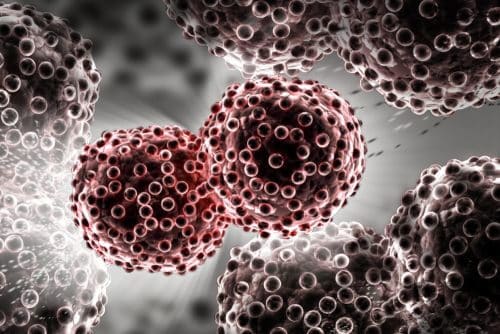Immunotherapy is a treatment that stimulates the immune system to recognize and attack the cancerous tumor. The disease of the patients treated with Impinzi did not become complicated for an average of 28.3 months compared to 16.2 months for the patients who were treated with the currently accepted treatment and remained only under observation

Immunotherapy is a treatment that stimulates the immune system to recognize and attack the cancerous tumor. The disease of the patients treated with Impinzi (durbalumab) did not become simple for an average of 28.3 months compared to 16.2 months for the patients who were treated with the currently accepted treatment and remained only under observation. These are new data from the "Pacific" study, the results of which were revealed at the World Lung Cancer Conference in Toronto these days.
PD-L1 inhibitor type immunotherapy stimulates the immune system to recognize and attack the cancerous tumor. Immunotherapy has already been proven to be effective in recent years for the treatment of cancer patients in the metastatic stage, but no treatment has yet been able to prove effectiveness in an earlier stage of the disease, stage 3.
About a third of lung cancer patients are diagnosed at stage 3, a stage defined as advanced local disease. At this stage the tumor has not yet invaded outside the lungs, but these are mostly patients who cannot be operated on.
This stage of the disease is the last window of opportunity in which it is still possible, in some cases, to cure the disease, just before the patient deteriorates and his disease metastasizes.
With the goal of trying to cure the patient, the accepted treatment for stage 3 patients for several decades is a combined treatment of chemotherapy and radiation.
After the combined treatment, there is no additional treatment that can preserve the condition and prevent the patient from deteriorating at a certain stage to the stage of metastatic disease.
Over 40 large and significant studies over the years failed to improve the survival curve of the patients.
Until today, the patients who completed the combined treatment remained under medical observation only, without treatment, and into that window of time "Impinzi" now enters with the aim of producing a response of the immune system against the disease.
The Pacific study followed for over two years more than 700 patients who were divided in the study into two groups:
One group was treated only with the conventional phase (chemotherapy and radiation) and then, received a sham treatment (placebo) to parallel the current accepted situation, in which the patients remain only under observation until progression to widespread disease.
The second group was treated, immediately after the chemotherapy and radiation treatments, with Impinzi, which is given by infusion once every 3 weeks for a whole year.
Research results:
For the first time, the treatment demonstrated a significant effect on patient survival: at the end of the study period, over 50% of the patients were still alive, and the treatment reduced the risk of dying by 32% and the risk of progression to metastatic disease by 47%.
The disease of the patients treated with Impinzi did not become simple for an average of 28.3 months compared to 16.2 months for the patients who were treated with the currently accepted treatment and remained only under observation.
The data joins previous data that showed that the treatment with Impenzi was able to stop the disease for 17.2 months compared to 5.6 months in the patients who were treated only with the combined treatment available today.
The study also examined the quality of life of the patients and the safety of the preparation, and no unique side effects to the treatment were observed. The patients' quality of life was maintained and even improved in several indicators.
"Impinzi represents the first progress in many years at this stage of the disease, and provides new hope for stage 3 lung cancer patients. The results of the study make the treatment the best medical solution for patients from now on," declared Prof. Scott Antonia, the researcher who headed the Pacific study and head of the oncology department at the center Moffitt for Florida Cancer Research.
The full study was published at the same time as the conference in the prestigious scientific journal, the New England Journal of Medicine.
More of the topic in Hayadan:

2 תגובות
I assume that it is a certain type of lung cancer, it's a shame that it is not mentioned in the article.
It's sad that the pinnacle of technology is living with a watch. It is two years.
Steve Jobs lived with pancreatic cancer for 13 years, a combination of a slow rare strain and a fortune. Had a liver transplant if I'm not mistaken - not sure. The money extended his life, not bought it.